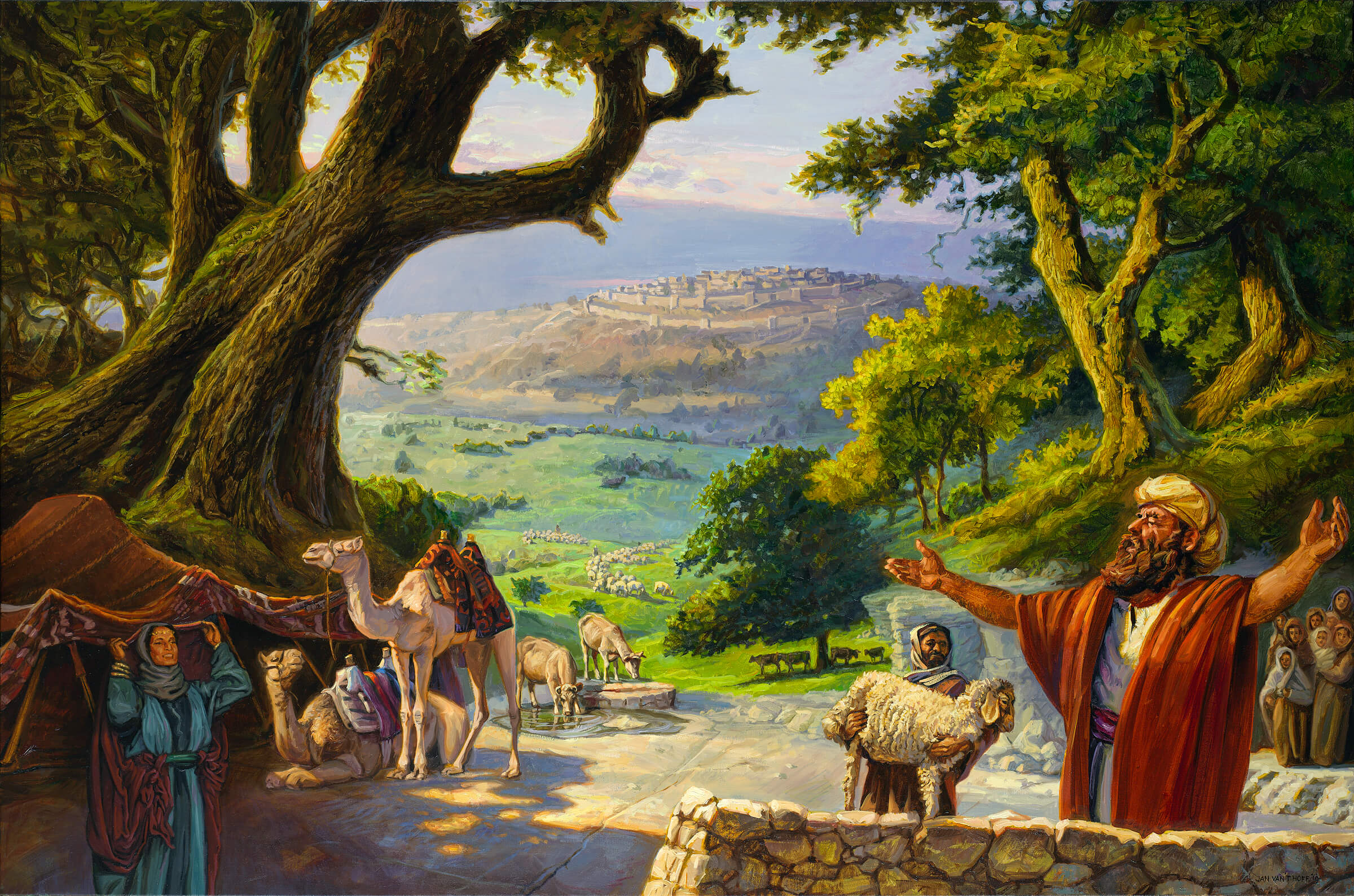Gospelimages is committed to share the Biblical message as widely as possible via paintings, but not for profit.
Via the webshop it is possible to purchase high quality reproductions printed on canvas (giclées) of the painting of your choice.
All royalty proceeds will be made available to GlobalRize, "reaching the world for Christ online".
www.globalrize.org You are now leaving this website.
Abrams altar at Hebron
Genesis 13:18
So Abram went to live near the great trees of Mamre at Hebron, where he pitched his tents. There he built an altar to the LORD.Full bible text
About this painting
In Genesis 11 and 12 Abram is introduced; a descendant of Shem. The Lord calls Abram to leave Ur in Mesopotamia, and go to the land God will show him: Canaan. God promises Abram to make him into a great nation, and promises him to give the land Canaan to his offspring. Furthermore the Lord says to him: "and you will be a blessing" and: "all peoples on earth will be blessed through you".
Abram sets
out for Canaan and arrives there. As he travels through the land he builds
altars to the Lord in several places; first in Shechem, then also in the
neighbourhood of Bethel and Ai. The third altar mentioned in the text is built
near the great trees of Mamre at Hebron.
This altar is pictured in the
painting. Hebron is visible in the background. An altar is the place where a
sacrifice is made. Abram answered the promises of God with worship.
In this
worship at the altar the sacrifice played a central role.
The sacrifice refers
to the ultimate sacrifice of Jesus, through which we may come to God. Hebron
means: place of communion and brotherhood.
Mamre means: prosperity. Abram
experienced communion with the Lord in worshipping Him, and rested in the
trustworthiness of His promises with respect to the land and his progeny. He
was
‘looking forward to the city with foundations, whose architect and builder
is God’.
Hebrews 11 verse 10
Jesus, speaking about Abraham, said:
"Your
father Abraham rejoiced at the thought of seeing my day; he saw it and was
glad".
John 8 verse 56.
Later on in
Israels history Hebron is mentioned as one of the six cities of refuge.
Joshua
20 verse 7 and 8. A city of refuge is a place where anyone who kills a person
accidentally and unintentionally may flee there and find protection from the
avenger of blood.
In a way the city of refuge is a reflection of Jesus Christ.
Anyone who is in Him through faith, will not be condemned.